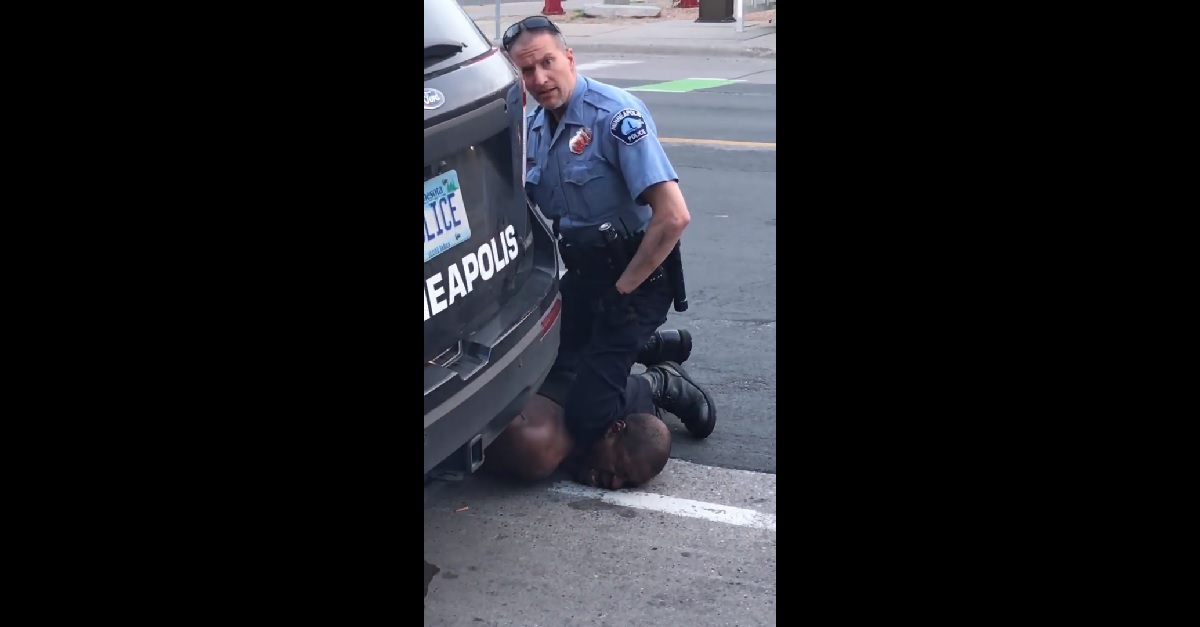Several children — including a 9-year-old girl — were forced to recall what they saw as George Floyd taking his last breaths while being held on the ground by former Minneapolis police officer Derek Chauvin and three other officers.
Legal experts believe prosecutors called the children to talk about such a traumatic event to support a prosecution request to seek a longer sentence than the law normally would allow should Chauvin be convicted in the death of George Floyd.
“The ambulance had to push him off of him,” one of the children testified. The child was describing what happened from her perspective when EMTs arrived and approached Chauvin, who had his knee on Floyd’s neck.
“Did you notice anything about what Mr. Chauvin was doing with this body?” Assistant Attorney General Erin Eldridge asked one child. “At one point I saw him put more and more weight onto him,” the child responded.

Last August, prosecutors filed a notice to seek an upward sentencing departure. The notice was followed in October with a five-page legal brief in support of the notice and a 25-page exhibit of attached case law.
Minnesota sentencing guidelines allow for a range in punishment. Attorney General Keith Ellison’s office cited several factors in requesting an upward departure including the incident taking place in front of children, Floyd being in handcuffs when he was restrained, and the officers abusing their authority while allegedly committing a crime while cloaked with official authority.
Former Hennepin Co. Public Defender Mary Moriarty told Law&Crime it’s not a given that Judge Peter Cahill would increase Chauvin’s sentence if the former officer is convicted. She believes Cahill would allow both sides to brief the issue.
“The judge cannot depart upward unless a jury makes certain findings,” Moriarty said. “Of course, if the judge gives an upward departure, that would be a ground for appeal. And the state wants to make sure they have a really good record establishing each basis for departure.”
Chauvin’s defense maintains Floyd died of heart problems and a drug overdose. Prosecutors say Chauvin and the three other officers killed Floyd by restraining him unnecessarily.
Read the state’s arguments in favor of an increased sentence below:
State Seeks Upward Sentenci… by Law&Crime
[image via Law&Crime Network]